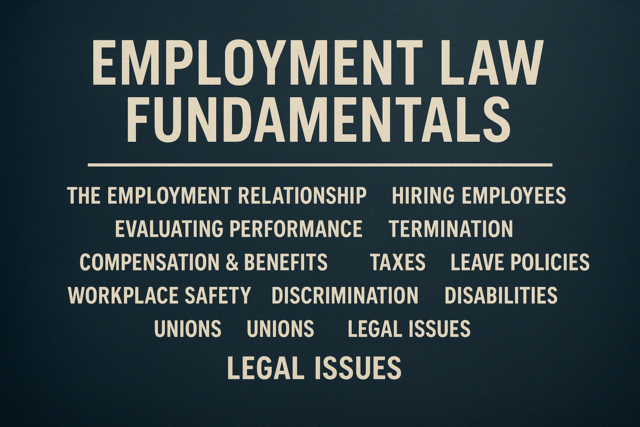Being able to keep your business solvent is the most important thing for a business owner. You want to be successful, you want to keep growing your business, and you would like to diversify if you can manage it. However, all of the above are simply pipe dreams until you have your business operating smoothly and making sensible money. Too many companies try to run before they can walk, and this was never more in evidence than around the turn of the century, when the dot-com business boom led to a dot-com business bust in short order. People who made a lot of money very quickly thought they were bulletproof and discovered they were not when other companies came along, took their ideas and their customers, and continued to make money.
Unless you have a very wealthy, forgiving, and relaxed benefactor, in order to afford major business ventures, you will need to have sources of credit that can be called upon to deliver the financing you need at key times. This way you can push the business on and profit from gaps in the market, times of extreme demand, and other business opportunities. There are lending institutions out there that are prepared to back what they see as a winner, but getting them to see your venture as a winner is a battle that does not win itself. This is where it is very important to cultivate a business credit profile that attracts potential creditors to see your business in a positive light. This is something that will not happen overnight and may require a bit of thinking outside of the box.
Instead of paying directly with cash, you can use the business credit card for the purchase. The cash that you would have used to pay for the purchases can instead be used to pay off the balance of the credit card. This may seem convoluted, but remember that your credit rating is affected positively by making full balance payments to a credit card. Therefore, instead of just getting the goods and paying for them, you are getting the goods, paying for them, and building your credit score. Your improved credit score will come in incredibly useful down the line when you are looking to secure funding for a business purchase that can make your company even more profitable. It is not a conventional way of operating, per se, but the benefits make it a very worthwhile way of doing things.
Although loans are not generally administered in the same way as credit cards, you can still benefit your credit rating by paying them off ahead of time, in full. Apart from anything else, getting a monthly repayment off your list of outgoing expenses is helpful. The same applies to paying off mortgages ahead of time and keeping your bank account in the black at all times.
In order to get anywhere in setting up a business, unless you have already been operational for years and have a significant enough fortune to fund the entire project yourself, you will need to get funding. To secure this funding, you will need to demonstrate to potential investors that you are worth investing in. Your business plan will act in this situation as your passport to the world of business. A bad or incomplete business plan will completely dissuade even the keenest potential investor from putting money into your company because, as far as investors can see, it is highly likely to fail. On the other hand, a really good business plan can make the difference between getting funding and not and between getting really good funding and basic funding. In this light, it is not hard to see why people put such emphasis on compiling a good business plan.
Making a business plan is arguably the most important part of your entire business journey. It may appear to be just some words and figures on paper, but it is a great deal more. It tells a potential investor about your grasp of the realities of business and whether you have what it takes to run a successful business. The business plan will outline your idea for a business, your hopes and expectations, and your understanding of financial realities. It will tell the potential investor what you would do in a certain situation, what you estimate your income from a specific stream would be, and how good your troubleshooting skills are. These are just a selection of the things that a business plan needs to get across. A good business plan will be a very complete document that will demonstrate that a large degree of thought has gone into making your company successful. To ensure your business plan is taken seriously, it is essential that it covers at least the following bases:
� Cover Page;
� Table of Contents;
� Executive Summary;
� Market Research;
� Business Structure;
� Objectives and Plans;
� Financial Plans.
The cover page and the table of contents really speak for themselves. Nonetheless, they are essential parts of any business plan. They formalize the plan and demonstrate your awareness of the need for formal thinking and presentation. The cover page also demonstrates at a glance what your business plan is about and what your business does. If finding this information out requires readers to leaf through a number of pages, they will come to doubt your understanding of how to communicate your ideas.
The "Business Structure" section will refer to the people involved in making the business work and outline their credentials. It will refer to where the business headquarters are and why they are there. It will outline how the organization will be structured, into departments, staff, and so forth.
Finally, there will be the financial plans. Because this is a plan for the future, most of the figures involved in your financial planning will be forecast numbers rather than anything with more certainty attached to them. This is not to say that you can skimp on their accuracy. In fact, it is all the more important to give these figures your greatest attention because your forecast needs to take into account a great deal of information: the financial results of similar companies, the effect of being a new company, and your immediate disposable budget at the outset of the project. In all capacities, you must be absolutely realistic and back up your forecasts with confidence and accuracy.






























